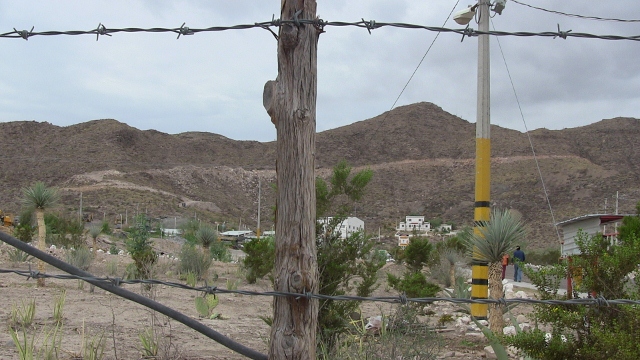By Paul Bocking / Waging Nonviolence
Civil disobedience has halted production at Mexico’s “top grade producer of silver.” Farmers of the La Sierrita village, a close knit community of about 50 families, located 40 minutes north of the city of Gomez Palacio, Durango, have shut down the La Platosa mine owned by Canadian firm Excellon Resources for over a month.
This comes in response to the company’s refusal to negotiate with the community over its requests for the preferential hiring of local people on whose land the company operates, as well as pay the rental rates for its use. Labor conditions within the underground mine where many local residents work is also an issue. Dozens of community members have maintained a nonviolent blockade of the one road into the mine, allowing only essential maintenance workers to pass, resulting in extraction grinding to a halt.
In recent years mining operations have drawn local protests from Peru to Tanzania and Papua New Guinea. Mexico is the site of several high profile struggles, nearly all involving Canadian companies. Communities are opposing the loss of their land and its contamination with toxins, including arsenic and cyanide, which are used in abundance in the extraction of gold.
Unlike many of these conflicts, the residents of La Sierrita have succeeded in inflicting a substantial economic cost to the company. As in the case of an effective strike, it is hoped that the continued shut down of its sole mining operation will eventually force Excellon to yield. Along with the community’s unified resolve to maintain the blockade, what distinguishes this struggle is that so far, it has succeeded in effectively disrupting the mine without triggering violent repression from the Mexican government or the company.
Many human rights activists are accustomed to campaigning against U.S.-based transnational corporations, which continue to dominate many sectors, but in the particularly violent, exploitative and dirty world of resource extraction, Canadian corporations are among the worst culprits. Since the mid-1990s, the Canadian-based mining sector has emerged to become the biggest in the world. The Toronto Stock Exchange is now the principal source of finance capital for mining operations. In 2010, Canadian mining companies held assets worth $129 billion internationally, with 90 percent owned by the 70 largest firms. Mexico is the second biggest country for Canadian overseas mining operations. With five mines, Goldcorp has the largest Canadian corporate presence in Mexico. Goldcorp also owns the infamous Marlin mine in Guatemala, where the company has been implicated in the deaths of human rights activists protesting its incursion into traditional indigenous territories.
Read more from Waging Nonviolence: http://wagingnonviolence.org/2012/08/no-silver-medal-mexican-farmers-battle-canadian-mine-for-control-of-their-land/

